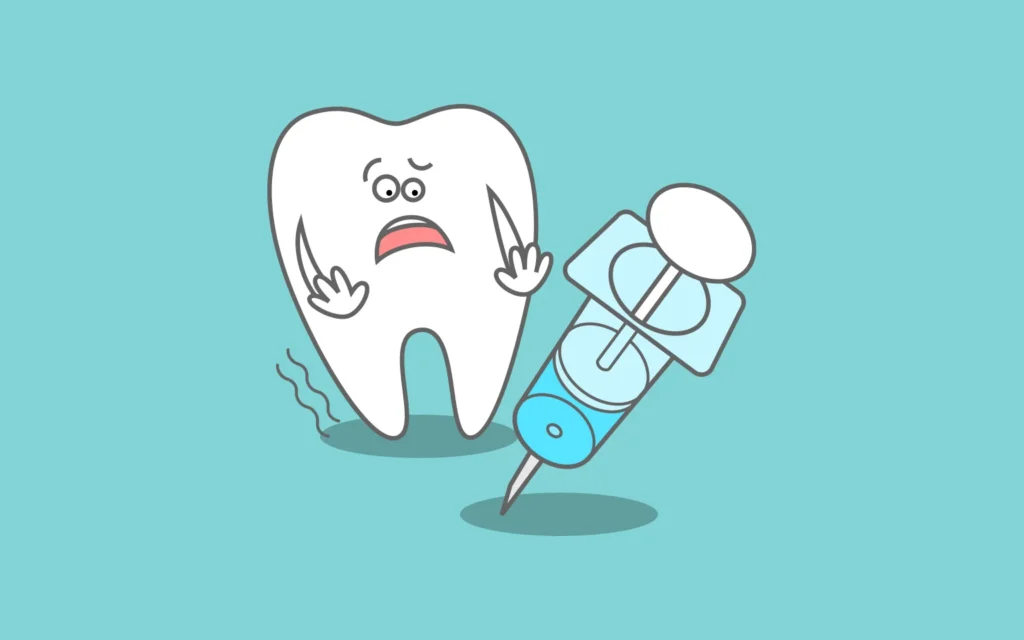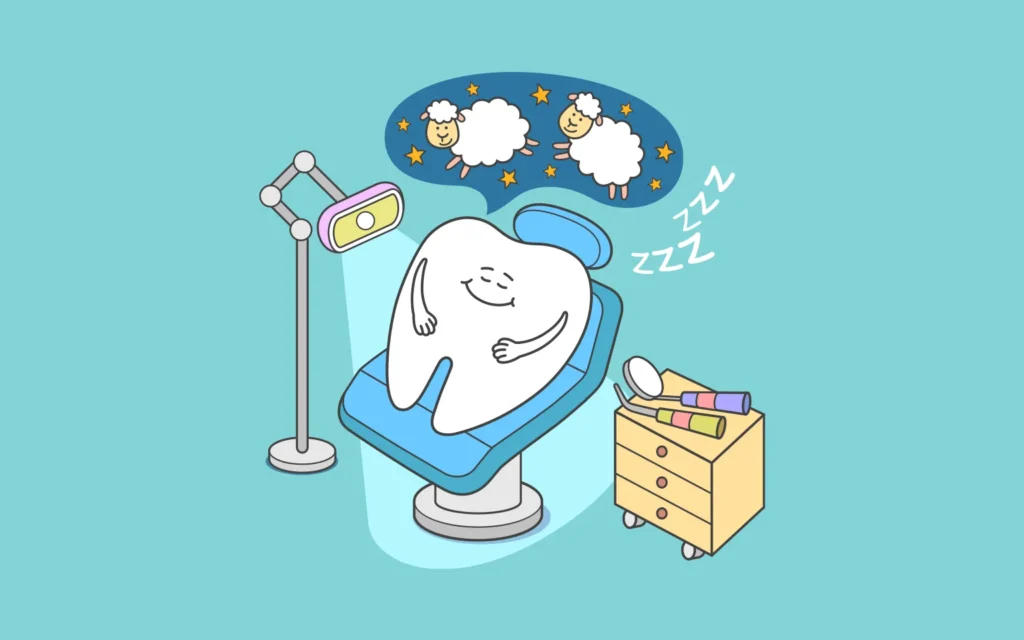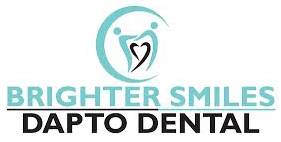What is Sedation Dentistry? Is it Right for You?
Dental visits can bring on feelings of anxiety and even fear for many people. Whether it’s the sound of the drill, the clinical environment, or previous negative experiences, dental anxiety can make it challenging for individuals to get the essential care they need. Thankfully, advances in dentistry now offer various forms of sedation dentistry
to make the experience more comfortable and stress-free. But what exactly is sedation dentistry, and how can you know if it’s the right choice for you?
In this blog, we’ll dive into what sedation dentistry is, the different types available, and what to consider if you’re thinking about opting for this approach during your next visit to Brighter Smiles Dapto Dental.
What is Sedation Dentistry?
“Sedation dentistry” uses medication to help patients relax and feel more at ease during dental procedures. Unlike general anesthesia, which renders a person completely unconscious, sedation dentistry keeps patients awake but in a much more relaxed state. This allows the patient to maintain enough consciousness to respond to instructions while feeling calm and sometimes not even remembering the procedure at all.
Sedation is particularly helpful for patients who experience anxiety, have a low pain threshold, or require extensive dental work. It is also commonly used for children or individuals with special needs who may find it difficult to remain still during treatment.

Types of Sedation Used in Dentistry
There are several types of sedation used in dentistry, each with different levels of effect. The team at Brighter Smiles Dapto Dental will assess your specific needs and determine which type is best for you. Here’s an overview of the most common types:
1. Nitrous Oxide (Laughing Gas)
This is a mild form of sedation that involves inhaling a mix of nitrous oxide and oxygen through a mask placed over the nose.
The effects are felt within minutes, inducing a calm, happy feeling.
Nitrous oxide wears off quickly, allowing you to drive home or return to normal activities soon after your appointment.
2. Oral Sedation
In oral sedation, a pill is taken about an hour before the procedure. The medication, often in the form of diazepam or a similar drug, helps to reduce anxiety and create a feeling of deep relaxation.
Depending on the dosage, oral sedation can range from minimal to moderate.
Patients remain conscious and responsive but may feel drowsy and have limited memory of the procedure.
3. IV Sedation
Intravenous (IV) sedation is administered through the bloodstream, allowing the dentist to control the level of sedation more precisely.
It produces a moderate to deep level of sedation, meaning patients may not remember much, if anything, of the procedure.
This type of sedation requires more preparation, and patients will need someone to drive them home after their appointment.
4. General Anesthesia
Although not as common in regular dental offices, some complex procedures may require general anesthesia, which involves rendering the patient completely unconscious.
This is typically reserved for surgical procedures or extreme cases of anxiety and is usually performed by a specialist or in a hospital setting.
Who Can Benefit from Sedation Dentistry?
Sedation dentistry can benefit a wide range of people, especially those who face particular challenges with traditional dental care. Here are some of the groups that can benefit the most:
- People with Dental Anxiety or Phobia: Dental anxiety is a common reason for avoiding dental visits, and sedation can make it easier to get necessary care without the associated stress.
- Those with a Low Pain Threshold: If you experience heightened sensitivity or a low pain threshold, sedation can ease your discomfort.
- Individuals Requiring Extensive Work: For procedures that require a long time in the dentist’s chair, sedation allows you to sit comfortably for the entire duration.
- Children and Patients with Special Needs: Sedation can help children or individuals with special needs relax and remain calm, making it easier for the dentist to perform necessary treatments safely.
- Patients with a Strong Gag Reflex: Some people have an exaggerated gag reflex, which can make dental procedures very uncomfortable. Sedation can reduce this reflex and make treatments more manageable.
Is Sedation Dentistry Safe?
Sedation dentistry is generally safe when administered by trained and experienced professionals, like those at Brighter Smiles Dapto Dental. Our team ensures that all necessary safety measures are in place and that each patient is carefully monitored throughout the procedure.
However, like all medical treatments, sedation does carry some risk, especially for individuals with certain medical conditions. It’s important to provide a complete health history and discuss any medications you’re taking so your dentist can assess if sedation is suitable and safe for you.
What to Expect During a Sedation Dentistry Appointment
If you and your dentist decide that sedation is the right option, here’s what you can typically expect on the day of your appointment:
- Pre-Appointment Preparation: You may need to follow certain instructions, like fasting before the appointment, depending on the type of sedation you’ll receive.
- Administration of Sedation: The sedation will be administered via inhalation, oral medication, or an IV, depending on the chosen method.
- Relaxation During the Procedure: As the sedation takes effect, you’ll feel more at ease. For some types of sedation, you may remain awake but feel completely relaxed and detached from any fear or discomfort.
- Post-Procedure Care: Depending on the level of sedation, you may need a family member or friend to accompany you home. The dentist will provide specific instructions on how to recover from the sedation.

Pros and Cons of Sedation Dentistry
Pros:
- Reduces anxiety and stress associated with dental visits.
- Helps patients undergo necessary treatments without discomfort.
- Useful for longer or more complex dental procedures.
- Minimizes the risk of gag reflexes or restlessness during treatments.
Cons:
- Not all forms of sedation are suitable for everyone, especially those with certain medical conditions.
- Higher levels of sedation may require assistance after the appointment.
- May come with additional costs, as not all insurance plans cover sedation.
Is Sedation Dentistry Right for You?
Determining if sedation dentistry is right for you depends on several factors, including your anxiety levels, pain tolerance, and the type of dental work you require. At Brighter Smiles Dapto Dental, we work closely with each patient to understand their needs and comfort levels. If dental anxiety has kept you from getting necessary care or if you have other challenges that make traditional dentistry difficult, sedation could be a great option.
Final Thoughts
At Brighter Smiles Dapto Dental, we believe that everyone deserves access to comfortable, stress-free dental care. Sedation dentistry is a powerful tool that allows us to treat patients who might otherwise avoid dental visits, ensuring their oral health doesn’t suffer due to fear or discomfort.
If you’re considering sedation dentistry, we encourage you to book a consultation. Our friendly team is here to answer any questions you have and help you decide if sedation is right for you. Together, we can create a plan to make your dental experience a positive one, ensuring you leave with a brighter smile and peace of mind.
By exploring sedation dentistry, we hope to empower more patients to feel comfortable, safe, and in control during their visits. Your smile is important, and we’re here to support you every step of the way.
Dr Kala Raj , Nov 2024


